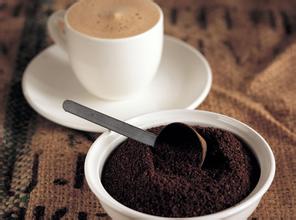Description of Coffee Flavor in Las Haas Manor, Costa Rica
Costa Rica Las Jas Estate Coffee Flavor Description Taste Variety Area Treatment Introduction
Las Lajas Estate Yellow Honey
Country: Costa Rica
Region: Central Valley
Class: SHB;
Processing method: yellow honey processing
Altitude: 1300~1500 m;
Breeds: Caturra, Catuai
Flavor Description CUPPING NOTES: Honey, Tropical Fruit,Maple Syrup,Melons
Las Lajas, in the western valley, is located in Sabanilla de Alajuela, the foothills of Poás Volcano, in the Central Valley region. "Lajas" is technically the name of the Chacon family processing plant, the name of the estate is Finca La Mirella, but the world's bean bakers are also accustomed to calling it Finca las lajas, and it is also the first estate in Central America to start honey processing and natural sun processing. Solarization is a very traditional practice that uses minimal resources, but it is difficult to do well because of the many factors beyond your control. Francesca added many innovations, such as measuring the sugar content of the fruit with a Brix meter, which is often equipped in the wine industry, and determining the best time and treatment for harvesting according to Brix sugar content. The Brix value of ordinary fruits is 14 for apples, 12 for lemons and 18 for passion fruits, but Lajas coffee cherries can reach 21-22% Lajas (Las Lajas) Small coffee processing plant with more than 80 years of coffee growing and processing history, in the last century 95, because of Lajas (Las Lajas) The second generation of small coffee processing plant operators died of cancer, leaving the third generation Francesca to succeed. Francisca and Oscar Chacon (Oscar Chacón) The couple suspected that chemical fertilizers and pesticides used on the farm were the culprits. Since then, they have switched to natural, homemade compost. They have adopted natural farming methods that are environmentally friendly to treat coffee crops. After five years of unremitting efforts, the soil, branches and fruits of the farm have passed the analysis. In 2000, La Jas became the first farm in Costa Rica to obtain organic certification.

Important Notice :
前街咖啡 FrontStreet Coffee has moved to new addredd:
FrontStreet Coffee Address: 315,Donghua East Road,GuangZhou
Tel:020 38364473
- Prev

Introduction to the Grinding scale of varieties produced by Panamanian Geisha Rosa Coffee Flavor description method
Panamanian Geisha Rose Summer Coffee Flavor description processing Variety Grinding scale introduction to the unique orange honey flavor of Panamanian geisha, the unique orange flavor of Panamanian geisha is so moving that it must have benefited from the protection of good mountains and water in Panama. the low temperature and stable climate at high altitude makes the coffee here grow slowly, the beans are hard, and all have a unique strong flavor. Geisha is good, but it is produced.
- Next

Where does Africa produce Blue Mountain coffee beans Variety characteristics Production area Processing method Flavor description Grinding scale Introduction
Coffee is the first crop in Tasmania, and many farmers depend on it for their livelihood. Tasmania uses a water-washing process, which has characteristics similar to Kenya, but is less acidic and is a milder coffee. Overall, the quality is not as good as Kenya coffee. Tasmania round beans have
Related
- Detailed explanation of Jadeite planting Land in Panamanian Jadeite Manor introduction to the grading system of Jadeite competitive bidding, Red bid, Green bid and Rose Summer
- Story of Coffee planting in Brenka region of Costa Rica Stonehenge Manor anaerobic heavy honey treatment of flavor mouth
- What's on the barrel of Blue Mountain Coffee beans?
- Can American coffee also pull flowers? How to use hot American style to pull out a good-looking pattern?
- Can you make a cold extract with coffee beans? What is the right proportion for cold-extracted coffee formula?
- Indonesian PWN Gold Mandrine Coffee Origin Features Flavor How to Chong? Mandolin coffee is American.
- A brief introduction to the flavor characteristics of Brazilian yellow bourbon coffee beans
- What is the effect of different water quality on the flavor of cold-extracted coffee? What kind of water is best for brewing coffee?
- Why do you think of Rose Summer whenever you mention Panamanian coffee?
- Introduction to the characteristics of authentic blue mountain coffee bean producing areas? What is the CIB Coffee Authority in Jamaica?

